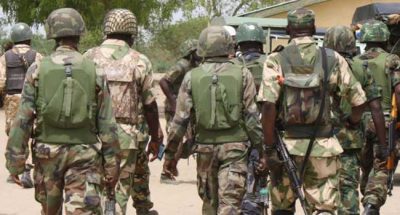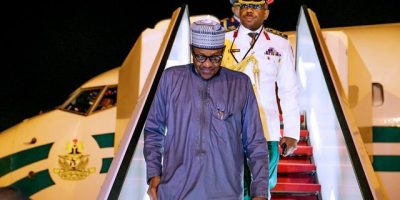*As Moscow blocks Facebook, BBC, Deutsche Welle websites
*NATO says ‘no’ to no-fly-zones over Ukraine
*Russian military seizes control of Chernobyl nuclear plant, site of worst nuclear disaster in history
Kyiv, in the path of a Russian armoured column that has been stalled outside the Ukrainian capital for days, came under renewed assault, with explosions audible from the city centre.
Twenty hours after successfully taking control of Ukraine’s key port city of Kherson Thursday, Russia forces fighting in the country, after shelling saw to the fall of Zaporizhzhia plant under the control of Russia on Friday.
This has been reported even by all western media with Reuters saying Russia has taken control of Europe’s largest nuclear power station in Ukraine after it was hit by shelling.
Generally, it was reported that a fire started at the Zaporizhzhia plant after it was shelled by Russian troops, according to Ukrainian officials.
The UN’s nuclear watchdog said radiation levels and the safety of reactors were not affected.
World leaders have accused Russia of endangering the safety of an entire continent, and Ukraine’s President accused Russia of “nuclear terror”.
US President Joe Biden urged Moscow to stop its military activities around the site, while Canada’s Prime Minister Justin Trudeau said the “horrific attacks” from Russia “must cease immediately”.
UK Prime Minister Boris Johnson said the “reckless” attack could “directly threaten the safety of all of Europe”. All three leaders spoke to Ukraine’s President Volodymyr Zelenskiy by phone.
Mr Zelenskiy, meanwhile, said the attack could have caused destruction equal to six Chernobyls, the site of the world’s worst nuclear disaster in 1986.
“If there is an explosion, it is the end of everything. The end of Europe,” he said.
Russia’s defence ministry blamed the attack on Ukrainian saboteurs, calling it a “monstrous provocation” without providing evidence.
A building within the plant site was set on fire after being hit by a projectile but was not part of the reactors, according to the head of the International Atomic Energy Agency, Rafael Grossi.
He said safety systems at the plant were not affected by the fire and that there has been no release of radioactive material.
He described the situation at Zaporizhzhia as “normal abnormality”, meaning operations are normal but nothing else is.
Earlier, the IAEA said it was in “full 24/7 response mode” due to the “serious situation” at the power station.
Nuclear experts watching the events at Zaporizhzhia nuclear power plant say this is a very risky situation.
“For the first time this morning (Friday), I’m frightened,” Sheffield University nuclear materials expert Professor Claire Corkhill tells me.
It appears that only one of six reactors at the plant is now operating.
Corkhill said the reactors are being taken “offline” which means “they’re shutting down the nuclear reaction and putting them into a safe and stable state”.
She added this might have been Russia’s intention.
“If you want to target their power supply, you attack a building close to the power plant and force operators to shut it down,” she says.
Corkhill adds that a “worst-case scenario” would be that the plant’s electricity supply were damaged as “we could be looking at a scenario similar to what happened at Fukushima in 2011, where a loss of power led to a loss of cooling, which caused a meltdown of three of its nuclear reactors”.
The plant, located around 550km (342 miles) south-east of the capital Kyiv, generates around 20% of all electricity in Ukraine. It lies on the river Dnieper, north-east of the city of Kherson which is said to have been occupied by Russian forces.
The Russian military has also seized control of the Chernobyl nuclear plant, the site of the worst nuclear disaster in history.
In the meantime,Russia reportedly blocked Facebook and some other websites on Friday and passed a law that gave Moscow much stronger powers to crack down on independent journalism, prompting the BBC, Bloomberg and other foreign media to suspend reporting in the country.
Moscow’s attack on Ukraine, the biggest on a European state since World War Two, has created over 1 million refugees, a barrage of sanctions and fears of a global economic hit and wider conflict in the West unthought-of for decades.
Fighting was raging in Ukraine as Russian troops besieged and bombarded cities in the second week of an invasion that has isolated Moscow, which says its attack is a “special operation” to capture individuals it regards as dangerous nationalists.
Kyiv, in the path of a Russian armoured column that has been stalled outside the Ukrainian capital for days, came under renewed assault, with explosions audible from the city centre. Europe’s biggest nuclear power plant had also been seized.
The southeastern port city of Mariupol – a key prize for the Russian forces – has been encircled and shelled. There is no water, heat or electricity and it is running out of food after five days under attack, according to Mayor Vadym Boychenko.
“We are simply being destroyed,” he said.




